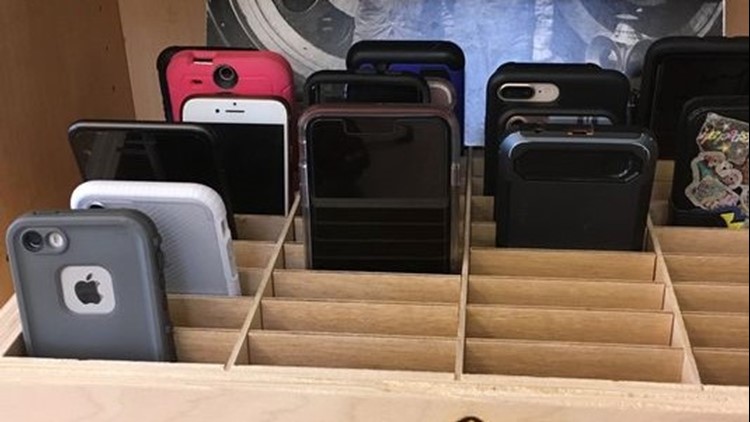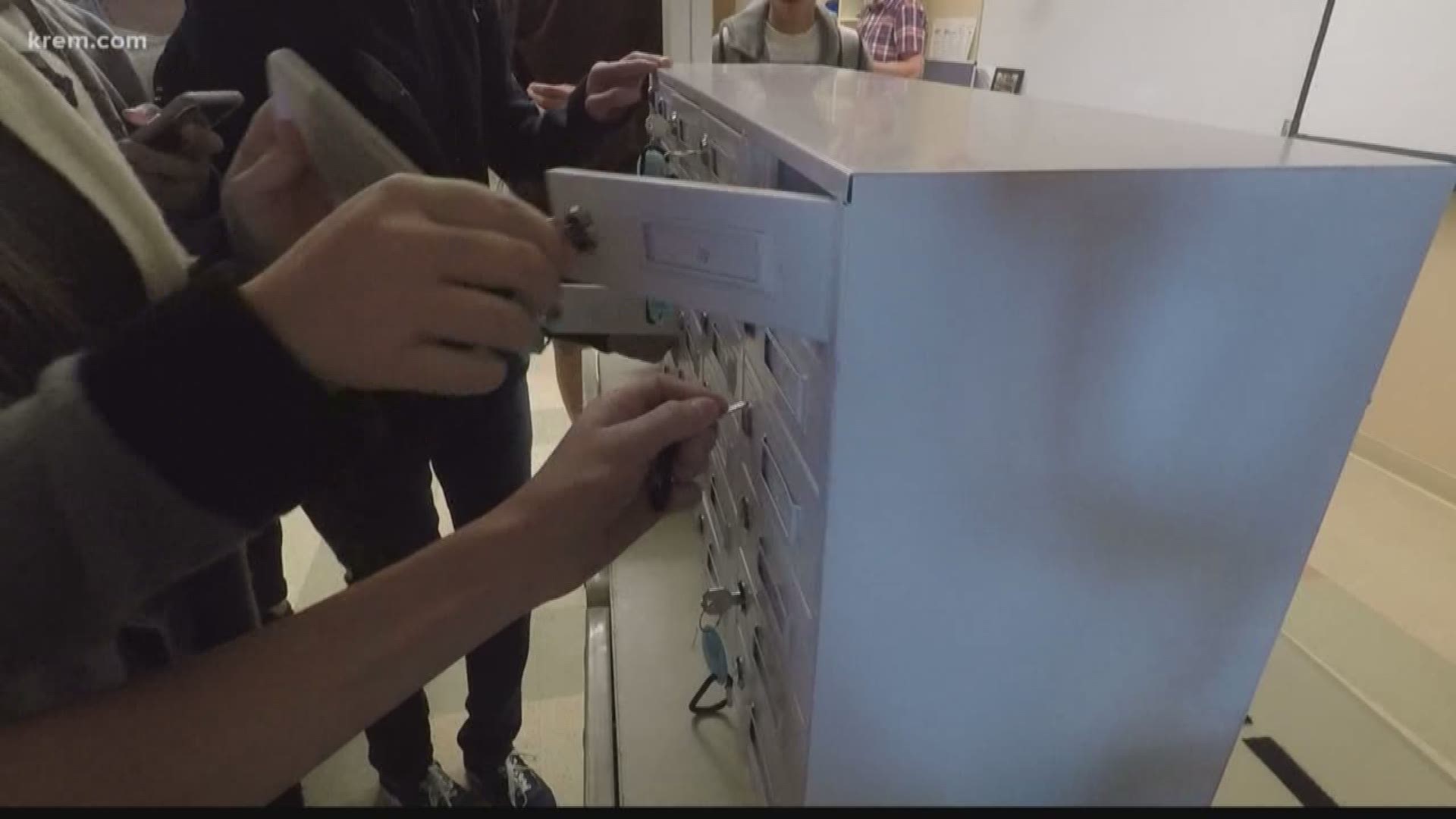Teachers love it. Students tolerate it.
Under a new policy, students at Bainbridge High School must surrender their cell phones and place them in classroom caddies while instruction is underway. The policy, used by some teachers in past years, expanded to the whole school this fall.
English teacher Ashley Crandell was one of the early adopters and is a member of the school's technology team that advocated for the policy. When a cell phone — even silenced — vibrates in a student's pocket, the impulse to check, however briefly, disrupts their attention, Crandell said, and all those little glances add up.
"There was quite a bit lost. That was my general experience," she said.
The faculty as a whole agreed this summer to implement the policy that Crandell and others have used with reported success. The Bainbridge Artisan Resource Network has made and donated some wooden caddies for the cause.
Now that the policy has been in effect for a month, the impact on the school environment is starting to show.
Students seem "more present," said Emily Eigen, a language arts teacher who is also on the tech team.
"I think in general we are finding it so relaxing," Eigen said. "In the past, when we didn’t have a clear policy either in the classroom or in the school, it took a lot of our attention constantly checking on students, reminding students to put away their phones, and we were noticing the impact on their ability to focus."
Students — some grudgingly — admit stashing their cell phones helps them stay on task.
"Obviously, I share the opinion with most people that I'd rather have my phone on me during class," senior Jackson Taylor said. "But I think overall I've paid attention more and, like, been more attentive during lectures and stuff like that, so I think overall it’s a good thing."


“I think it’s a good idea because cell phones can be really distracting and there are lots of temptations around cell phones to, like, play games or text your friends, so it really helps me pay attention in class," freshman Ana Byers said.
The technology team, in making its case to fellow teachers, cited research showing the impact of cell phones on concentration.
A study by the University of Texas at Austin gave participants tests to measure their cognitive capacity — the ability to hold and process data at any given time. Those who were asked to leave their cell phones in another room outperformed those who were asked to turn their phones off and tuck them away.
Some students, however, think the new rule goes too far.
"I think generally the problem a lot of people have with the cell phone policy isn't because of any dependence on their phone but they feel like the school is just continuing to crack down on this sort of thing," said Liam Hatakenaka, a senior.
Hatakenaka and others have expressed concerns about cell phones being lost or damaged in the shuffle to pick them up at the end of classes.
"People have very similar-looking phones and people are worried that anyone could just accidentally grab the wrong phone," said Skyla Tomine, a freshman. "They're just all in this big box and everybody's in kind of a rush after class to grab their phone."
There have been no reports of lost or damaged cell phones since the policy went into effect, Eigen said.
When the new policy was announced, parents and students were concerned about communication during an emergency. The school had an extended lockdown last February as police searched for a suspect who allegedly had assaulted students on campus, and in May the school was evacuated for a bomb threat that investigators later determined was not credible.
The policy allows for students to obtain their phones during a lockdown or evacuation.
"In an emergency, we’ll pass around those caddies. We’ll make sure they have access to their devices so that they can have that contact that’s so important to them and to their families," Eigen said. "So we’re really trying to work with families and with kids so that this is a positive policy for all of us and it really reinforces the right things without making people feel insecure."
The policy also allows students to use their phone for research during classes with the teacher's OK, and some students say they are allowed to listen to music while studying in class with the phone face down on the desk.
At Woodward Middle School, students must keep cell phones in their lockers under school policy.
Secondary schools in some other local districts are more lenient than Bainbridge.
Bremerton High School asks its students to turn off and put away electronics in class unless allowed by a teacher to use them for instructional purposes on approved applications and websites.
"We embrace technology and do not ban appropriate usage," BHS principal Monica Zuber said.
Mountain View Middle School in Bremerton has a similar policy.
Teachers in Central Kitsap School District are left to make the call whether and how cell phones are used during instructional time. "It's really handled on a class by class basis," said spokesman David Beil.
In North Kitsap's Kingston Middle School, students can only use electronic devices on the sidewalk by buses before 7:40 a.m. or after 2:35 p.m. and during lunch time without Internet access once in the commons. Students at Poulsbo Middle School can carry cell phones but can't use them during the school day "without obtaining permission from a teacher, staff member or administrator."
At North Kitsap High School, "cellular phones and electronic devices are not allowed in class unless directed for educational purposes."



